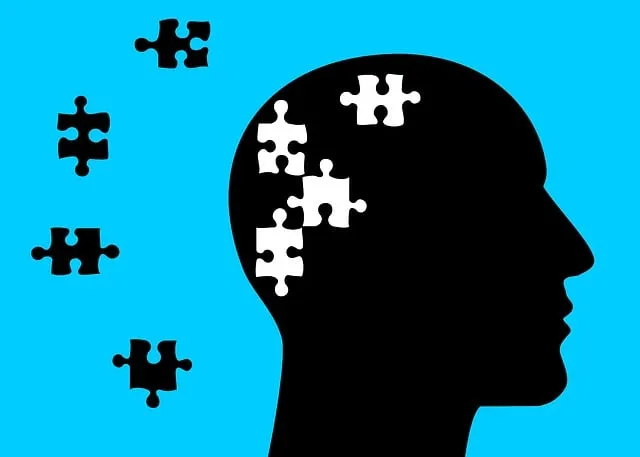The Wheat Ridge Kaiser Permanente behavioral health center tackles mental health stigma through education, destigmatization, and accurate media representation. They use cultural sensitivity, emotional intelligence, and community outreach to empower individuals with mental illness, aiming for a society where emotional well-being is normalized and treated with dignity.
In today’s digital age, media representation plays a pivotal role in shaping societal perceptions of mental illness. This article explores strategies to challenge the stigma surrounding mental health, drawing insights from the innovative approaches implemented by Wheat Ridge Kaiser Permanente Behavioral Health Center. We delve into understanding the root of societal stigma, analyzing effective media representation techniques, and fostering positive narratives that promote mental well-being. By examining these aspects, we aim to revolutionize how mental illness is portrayed in the media.
- Understanding Mental Health Stigma in Society
- Wheat Ridge Kaiser Permanente's Approach to Change
- Effective Strategies for Media Representation
- Fostering Positive Mental Health Narratives
Understanding Mental Health Stigma in Society

Stigma surrounding mental health is a pervasive issue that often hinders individuals from seeking help and support. This societal problem has deep roots in historical misconceptions and fear, leading to discrimination and marginalization of those living with mental illnesses. At the Wheat Ridge Kaiser Permanente behavioral health center, we recognize the critical need to address this stigma through education and advocacy. The journey towards destigmatizing mental health involves challenging deeply ingrained perceptions and fostering an environment where conversations about emotional well-being are normalized.
Cultural sensitivity in mental healthcare practice plays a pivotal role in breaking down these barriers. By embracing mind over matter principles, we encourage individuals to view mental illness as a treatable condition, no different from physical ailments. Emotional intelligence is another powerful tool; it enables healthcare providers and support systems to understand and empathize with the unique experiences of each individual, promoting inclusive and effective treatment approaches.
Wheat Ridge Kaiser Permanente's Approach to Change

Wheat Ridge Kaiser Permanente takes a multifaceted approach to challenging mental illness representation in media. As a leading behavioral health center, they prioritize communication strategies that promote accurate and compassionate portrayals of mental health. By collaborating with industry professionals, mental health experts, and individuals living with these conditions, Wheat Ridge Kaiser Permanente aims to shape narratives that reflect the diversity and complexity of human experience.
Their strategy includes implementing a community outreach program designed to increase awareness, dispel stigma, and foster understanding. Through educational workshops, public forums, and partnerships with local organizations, they empower communities to support those facing mental health challenges. Additionally, Wheat Ridge Kaiser Permanente focuses on confidence-boosting initiatives that encourage open conversations about mental illness, ensuring individuals feel seen, heard, and supported in their journeys towards recovery.
Effective Strategies for Media Representation

Effective media representation of mental illness is a powerful tool for challenging stereotypes and fostering understanding. The Wheat Ridge Kaiser Permanente behavioral health center emphasizes the importance of accurate, nuanced portrayals to reduce stigma and promote empathy among viewers. By integrating emotional regulation techniques, media creators can ensure that stories reflect the complexities of mental health experiences without oversimplifying or sensationalizing them.
Incorporating crisis intervention guidance within media narratives allows for responsible storytelling, enabling audiences to recognize signs of distress and know when and how to offer support. Furthermore, encouraging self-awareness exercises through media can help viewers develop a deeper understanding of their own mental health and that of others. This collective shift in perspective fosters a more compassionate society where individuals with mental illness are treated with dignity and respect.
Fostering Positive Mental Health Narratives

In recent years, the media has played a significant role in shaping public perception about mental health. The representation of individuals with mental illnesses in films, television shows, and news articles often perpetuates stereotypes or presents overly dramatic narratives. This can lead to stigma and misunderstanding among the general population. To counter this, it is crucial to foster positive mental health narratives that reflect the diverse experiences of those affected by various conditions. By showcasing realistic and hopeful stories, media platforms can contribute to a more empathetic society and encourage individuals to seek support, similar to the efforts undertaken at the Wheat Ridge Kaiser Permanente behavioral health center.
Embracing authenticity in storytelling involves consulting with healthcare providers, such as those specializing in trauma support services, to ensure accuracy and cultural competency training. This approach ensures that the emotional healing processes depicted are based on evidence and respect the lived experiences of individuals from different backgrounds. Such initiatives can help reduce the stigma associated with mental health issues and promote a culture of care and understanding, accessible through comprehensive services like those offered at Wheat Ridge Kaiser Permanente behavioral health center.
Mental illness representation in media has a profound impact on societal stigma and individual well-being. By understanding the pervasive nature of mental health stigma, we can appreciate the innovative approaches, like those employed by the Wheat Ridge Kaiser Permanente behavioral health center, that aim to challenge these negative perceptions. Effective strategies for media representation, coupled with fostering positive narratives, offer promising solutions to promote mental wellness and reduce stigma. These efforts are crucial in creating a more inclusive and supportive society where individuals with mental illness can thrive.






